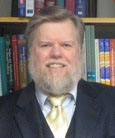Bulletin News

09/09/2010
Raymond G. Romanczyk, an internationally recognized expert on autism in children, will speak on Thursday, Sept. 16, at SUNY Cortland.
Romanczyk, founder and director of SUNY Binghamton’s Institute for Child Development, will present “Autism and Anxiety: Autism Spectrum Disorders and the Expression of Anxiety: Issues of Diagnostic Complexity and Insensitivity” at 7 p.m. in Sperry Center, Room 105.
Presented by the College’s Psychology Department, the event is free and open to the public.
With 35 years of experience providing direct services to children with autism, Romanczyk, a SUNY Distinguished Service Professor, is widely recognized for his contributions to the field of autism. The author of many scientific articles, he has given hundreds of presentations on autism.
In his talk, the scholar will review current diagnostic issues and upcoming changes in standards, pinpoint the prevalence of anxiety and anxiety-related disorders in Autism spectrum disorders (ASD), describe necessary assessment and clinical conceptualization steps, and present model examples of effective intervention.
“Autism spectrum disorders have a broad range of features, significant variation in severity of expression, and numerous associated characteristics,” Romanczyk said. “This produces complex issues in the identification and diagnosis of Autism Spectrum Disorders. The additional influence of social and political factors results in a conflict that may be characterized as ‘over pathologizing’ vs. ‘symptom insensitivity.’”
During his presentation, Romanczyk will provide an overview of these issues and then focus on a specific example from recent intervention research and clinical practice for individuals with ASD who display anxiety and anxiety-related clinical problems.
“Anxiety is a hypothetical construct that describes a complex cluster of behaviors and physiological state that vary in proportion to one another from individual to individual,” Romanczyk explained. “Unfortunately, the term ‘anxiety’ is often used very imprecisely. The process of anxiety development and maintenance will be discussed, as will clinical examples. The benefits as well as detriments to attempting to influence anxiety will be presented within the context of social and adaptive skill development. Cautions concerning well-intentioned but poorly conceived therapy will be highlighted.”
Romanczyk, a faculty member of the Clinical Psychology Graduate Program at SUNY Binghamton, is a licensed clinical psychologist and a board-certified behavior analyst specializing in the problems of children. He received his undergraduate degree from SUNY Stony Brook and his M.A. and Ph.D. from Rutgers University. At the Institute for Child Development, he has been involved in advocacy, program development, judicial and legislative process as expert witness, and has been providing direct services to children and families for more than 35 years. The institute’s former director of clinical training, he served two terms as chair of the Psychology Department at SUNY Binghamton. Romanczyk serves as an adjunct professor of psychiatry at SUNY Upstate Medical University in Syracuse, N.Y.
A Fellow of the American Psychological Association, he is a founding board member of the Association of Professional Behavior Analysts, a current member of the scientific advisory board of the National Autism Center, and a founding board member of the Council on Autism Services, a national organization of directors of autism service agencies. Romanczyk is a consultant to the New York State Department of Health Early Intervention Program and was a member of a New York State Department of Health panel that developed one of the first empirically based reviews of autism assessment and treatment practices. His work has been published in many professional journals and books.
For more information, contact Professor of Psychology Paul Luyben.

